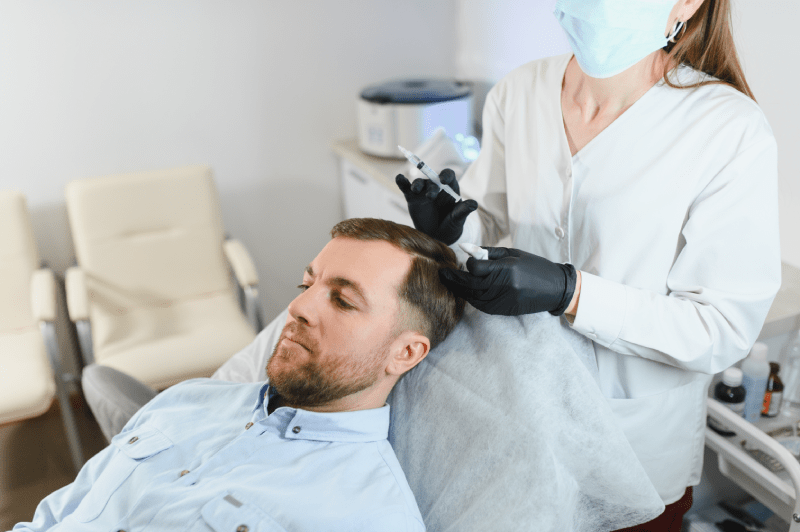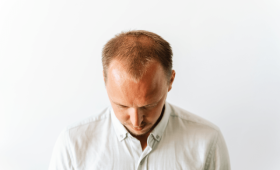What Is The Hair Transplant Process Step By Step
The hair transplant process begins with a detailed consultation and analysis performed by an experienced specialist in Istanbul. At this stage, the patient’s hair loss type, donor area capacity, and expectations are determined. Subsequently, the frontal hairline is designed, and the recipient area and donor area are numbed with local anesthesia.
Grafts are collected from the donor area using a chosen technique like FUE or DHI. The final stage involves transplanting these collected follicles into the thinning regions, paying close attention to the hair’s natural angle and direction of growth. This sensitive process usually takes 6 to 8 hours in the high-standard clinics of Turkey and is managed with meticulous care to ensure a high success rate and natural results that meet international standards.
Who Is The Ideal Candidate For Hair Transplant
Ideal candidates for a hair transplant are generally individuals experiencing male pattern baldness, regional hair loss, or hairlessness caused by scars or burns. The most important criterion is having a donor area (usually the back of the neck) with sufficient quality and density to support the operation.
Additionally, the person must be in good general health and not be using risky medications like blood thinners. Preliminary examinations conducted in Istanbul verify the stability of the hair loss, and suitability is assessed individually by specialists in Turkey to ensure the best possible outcome. A detailed medical history review is part of this crucial preparation phase.
Why Should Istanbul Be Preferred For Hair Transplant
Istanbul is recognized as a world leader in hair transplantation and is one of the central hubs of global health tourism. This city stands out with its modern facilities equipped with state-of-the-art technology and internationally renowned specialists with high case experience. Despite the high success rates and excellent aesthetic results, prices in Istanbul are significantly more cost-effective compared to those in Europe and North America. This affordability, combined with uncompromising quality, makes Turkey a highly attractive option for individuals seeking the best treatment globally.
How Is The FUE Technique Applied And Who Is It Suitable For
The FUE (Follicular Unit Extraction) technique involves collecting hair follicles one by one using special micro-motor punches and then implanting them into the recipient area after channels are opened. This minimally invasive method does not require incisions or stitches, which accelerates the recovery process and leaves virtually no visible scarring. It is ideal for candidates experiencing widespread hair thinning or baldness who also possess a good donor area. This technique, which is the most commonly applied in Turkey, is frequently preferred by specialists in Istanbul for achieving high-density grafts.
What Is The Main Difference Between DHI Technique And FUE
The main difference between DHI (Direct Hair Implantation) and FUE is the graft implantation method. In FUE, grafts are collected, channels are opened, and then grafts are placed into these channels. With DHI, special Choı pens are used, which open the channel and implant the graft simultaneously. DHI is advantageous for increasing density in thinning areas because it minimizes the risk of damage to existing surrounding hairs. Both techniques are available in Istanbul clinics, though DHI typically takes longer and is often associated with a higher cost due to the delicate process involved.
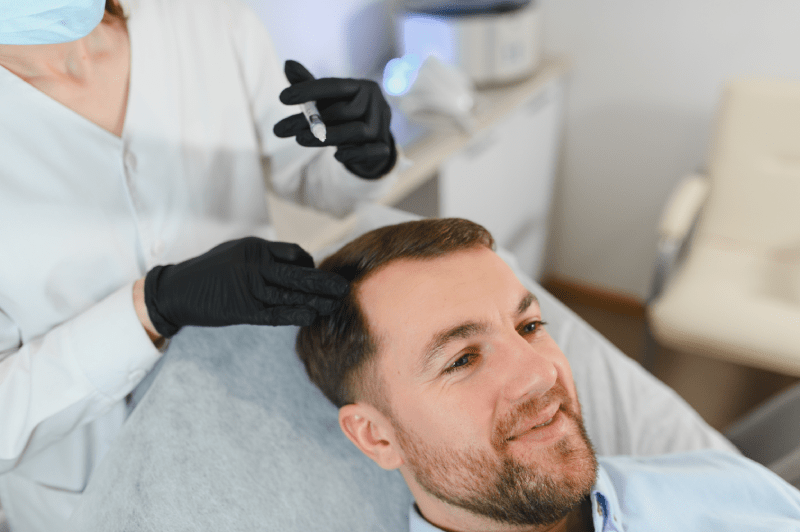
How Does The Sapphire FUE Technique Affect The Results
The Sapphire FUE technique involves using special blades made of smooth, sharp sapphire stone instead of standard metal blades when creating the implantation channels. These sapphire tips allow for the creation of much smaller, denser, and less damaging micro-channels in the tissue. Reduced tissue trauma means faster healing and less scabbing. This technique enables grafts to be placed at the correct angle and much more densely, which maximizes the natural appearance and density of the implant. Modern clinics across Turkey frequently utilize this advanced technique for superior aesthetic outcomes.
How Long Does The Hair Transplant Operation Take And What Is The Anesthesia Like
The hair transplant operation typically lasts between 6 to 9 hours, depending on the number of grafts to be transplanted, the technique used, and the speed of the team. This duration reflects the meticulousness and detailed planning of the procedure. The operation is performed under local anesthesia; thus, the patient remains awake but feels no pain or discomfort. While minor discomfort may occur during the anesthesia application, many centers in Istanbul make this initial phase more comfortable by using needle-free anesthesia devices, showcasing the quality of care in Turkey.
What Must Patients Do Before The Hair Transplant
Patients must adhere to strict rules before a hair transplant. The use of alcohol, smoking, and blood-thinning medications (like aspirin) must be strictly stopped at least one week before the operation. These substances can increase bleeding and negatively affect the success of the operation. Additionally, it is important to sleep well the night before and have breakfast on the morning of the procedure. Centers in Turkey perform detailed blood tests before the operation to check the patient’s overall health status. These preparations are vital for the safety of the operation and the survival rate of the grafts.
How And When Should The First Wash Be Done After Hair Transplant
The first wash after a hair transplant is performed typically 24 to 48 hours later and is a critical step in the recovery process. This wash must be performed under the supervision of the operating team or according to their detailed instructions, using special shampoos and lotions. The goal is to gently clean blood clots and scabs from the scalp without damaging the newly implanted follicles. Clinics in Istanbul provide patients with hands-on training and special products for the first wash, emphasizing the importance of soft, non-abrasive movements to protect the grafts.
When Do The Scabs Completely Disappear During The Recovery Period
The scabbing that forms in both the donor and recipient areas after a hair transplant is a normal part of the healing process. These scabs usually fall off completely within 7 to 10 days following the first wash. To gently clean the scabs, you should regularly use the lotions recommended by your doctor and apply light massages with your fingertips. After the scabs drop, a slight redness on the scalp is normal and subsides within a few weeks. It is crucial to avoid scratching the scabs with your fingernails, a key instruction provided by clinics in Turkey.
When Do The Transplanted Hairs Start To Grow And When Is The Result Seen
The first signs of growth for the transplanted hair follicles typically appear 3 months after the operation. These initial hairs may be thin and weak. The main thickening and densification process accelerates from the 6th month onwards. The final result and full density of the hair transplant are usually visible within 12 to 18 months. This is a lengthy process, but patients often achieve satisfactory results at the end of this patience period, thanks to the expertise of specialists in Turkey.
What Is Shock Loss After Hair Transplant
Shock loss is the temporary shedding of the hair strands from the transplanted follicles that occurs between 2 to 8 weeks after the hair transplant operation. This is a normal reaction of the hair roots to the trauma and adaptation process in their new location. It is important to remember that only the hair strands fall out, and the hair roots remain intact. After shock loss, the follicles enter a resting phase, and permanent new hairs begin to grow after approximately 3 months. Clinics in Istanbul proactively inform patients about this temporary and expected phase.
How Permanent Are The Results Of A Hair Transplant
The results of a hair transplant are permanent for life, provided the operation is performed with correct techniques and the follicles are taken from a healthy donor area. The transplanted grafts retain the characteristics of the neck area, which is genetically resistant to baldness. This means the transplanted hairs will not be affected by hormonal hair loss. However, existing original hairs not included in the transplant may continue to thin. Therefore, specialists in Turkey often recommend supplementary treatments to protect the surrounding native hair.
What Should Be Considered After Hair Transplant For Recovery
During the recovery process, especially the first 10 days, protecting the transplanted area is the most critical rule. Patients must shield the implant area from bumps, friction, and pressure. While sleeping, the head should be kept slightly elevated and the patient should lie on their back. Furthermore, prescribed medication must be used regularly, and heavy physical activity and excessive sweating should be avoided. Clinics in Turkey provide detailed written instructions for this sensitive period, ensuring patients have a successful recovery after their procedure in Istanbul.
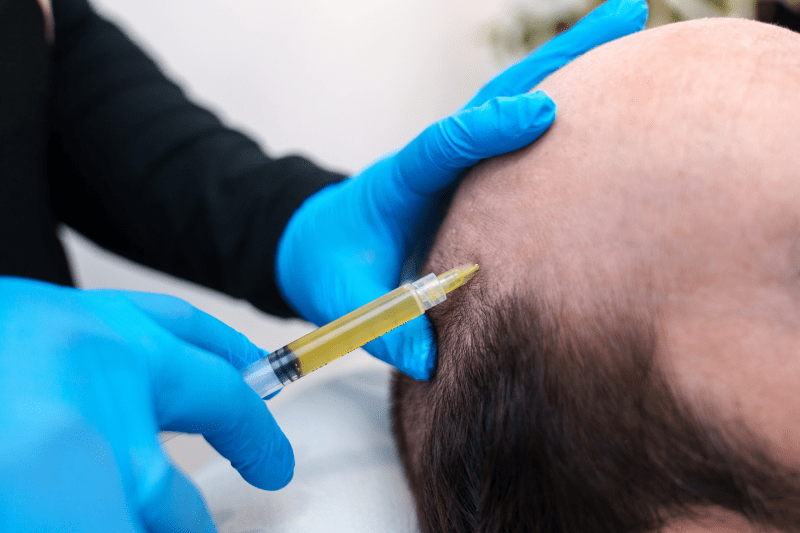
What Should Be Considered In Hairline Design
Hairline design is one of the most crucial steps that directly impacts the aesthetic success of the hair transplant. For a successful outcome, the hairline must be extremely natural and soft, conforming to the patient’s facial structure, age, and forehead muscle movement. Experienced specialists in Istanbul avoid a hairline that is too straight or artificial, using single grafts at the front edge to ensure a natural transition. The frontal line is determined based on professional measurements and aligned with the patient’s aesthetic expectations, reflecting the high artistic standards practiced in Turkey.
When Is It Safe To Resume Sexual Activity After Hair Transplant
It is generally recommended to wait at least 7 to 10 days before resuming sexual activity after a hair transplant operation. During this period, excessive physical exertion, increased blood pressure, and sweating that may occur during sexual activity can cause the newly transplanted grafts to shift or increase the risk of infection. The first week is a critical period for the grafts to securely anchor to the scalp. Specialists in Turkey advise patients to be cautious during this time to ensure a safe and healthy recovery.
Is There A Risk Of Permanent Thinning Or Scarring In The Donor Area
When modern FUE and DHI techniques are used, the risk of noticeable scarring or permanent thinning in the donor area is quite low. In successful operations, grafts are harvested with an even and homogeneous distribution to preserve the density of the donor area. Avoiding excessive graft harvesting (in mega sessions) is essential for donor area preservation. Experienced teams in Istanbul carefully analyze donor capacity to create a sustainable extraction plan, ensuring no visually disturbing sparsity occurs in the donor area.
Is A Visa Required When Coming To Turkey For Hair Transplant
Whether a visa is required for travel to Turkey depends on the patient’s nationality. While citizens of many European countries and certain other nations are exempt from a visa or can easily obtain an e-visa, citizens of some countries may need to obtain a visa from the consulate. It is mandatory to check the current visa requirements of the Ministry of Foreign Affairs of the Republic of Turkey before planning your trip. Organizations like Cure Holiday provide the necessary guidance and support regarding the visa process and other logistical details to facilitate your arrival in Istanbul.
When Is Air Travel Safe After Hair Transplant
Air travel is generally safe starting one day after the hair transplant operation. Most international patients return to their home countries one or two days after their procedure in Turkey, following the dressing and first wash check. However, caution must be exercised during the flight to protect the transplanted area from bumps. It is important to avoid rubbing your head against seat rests or luggage. Clinics in Turkey always provide patients leaving Istanbul with a special cap or bonnet to protect the scalp.
When Should Sports And Heavy Exercises Be Resumed
It is recommended to wait at least two weeks before resuming sports and heavy exercises after a hair transplant. This restriction applies especially during the first 14 days to intense activities that elevate the heart rate and cause sweating on the scalp. Only light walking is permitted during the first week. Heavy exercises can cause grafts to shift or increase the risk of infection through sweat. Adherence to this rule is crucial for maintaining the success of the procedure performed in Istanbul.
How Should The Scalp Be Protected From The Sun After Hair Transplant
It is mandatory to protect the transplanted area from direct sunlight for the first one month after a hair transplant. The sun’s ultraviolet (UV) rays can damage the sensitized scalp, leading to permanent redness or pigment changes. When going outdoors, a wide-brimmed hat or a doctor-approved cap that does not apply pressure to the scalp must be worn. If you are in Turkey during the summer months, minimizing time spent outdoors during the hottest hours contributes significantly to the healing process.
Why Are Hair Transplant Prices More Affordable In Istanbul
The primary reason why hair transplant prices in Istanbul are more affordable compared to many other countries is the lower operational costs, combined with intense competition and the high volume of experienced specialist teams. Turkey has created a scale economy in this field thanks to significant government investments in health tourism. This provides a cost advantage for clinics, all while maintaining high service quality. Patients thus have the opportunity to receive a world-class procedure in Istanbul at a much more accessible price point.
Is A Second Hair Transplant Session Necessary And When Is It Performed
The first hair transplant session usually addresses a significant portion of the need. However, a second session may be required in cases of advanced baldness or a desire to further increase density. It is crucial not to rush the second implant and to wait for the final result of the first operation, which takes 12 to 18 months. This waiting period is essential for both the complete healing of the donor area and the full potential growth of the transplanted follicles. The decision for a second implant is made by specialists in Istanbul after carefully evaluating the remaining donor capacity.
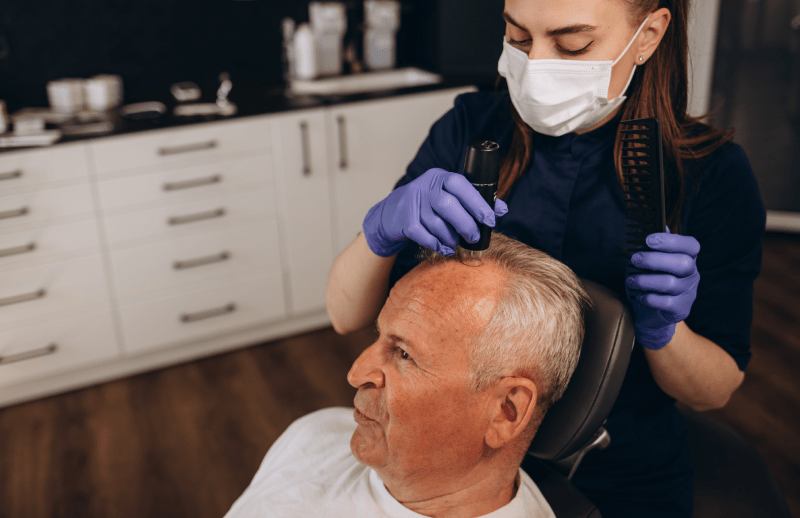
What Special Care Products Are Used After Hair Transplant
In the first few weeks after a hair transplant, the doctor specially prescribes antibiotics, painkillers, and anti-swelling medications to support healing and prevent infection. Additionally, special shampoos and lotions are provided to accelerate scalp healing and gently clean the scabs. In the long term, supportive products like Biotin, zinc supplements, or PRP treatments may be recommended to strengthen the hair follicles and slow down future hair loss. Turkey’s medical teams ensure you have a comprehensive recovery kit.
Does Hair Transplant Completely Stop Existing Hair Loss
A hair transplant only ensures that the transplanted follicles are permanently resistant to hair loss, but it does not completely stop hair loss in your existing surrounding hair. Your native hair loss may continue due to genetic or hormonal factors. Therefore, to protect existing hair and slow down shedding after a hair transplant, supportive treatments like Minoxidil, Finasteride, or PRP/Mesotherapy are often recommended. Specialists in Turkey will provide you with a comprehensive protection plan tailored to your needs.
When Can Hair Be Dyed Or Chemically Treated After Hair Transplant
You must wait at least 4 to 6 weeks before dyeing your hair or performing chemical treatments like perms or bleaching after a hair transplant. The harsh chemicals found in hair dyes can seriously damage the newly implanted, sensitive hair follicles and the healing scalp, potentially leading to graft loss. This waiting period is necessary for the scalp to fully heal and for the implanted follicles to be securely anchored. Being patient and following the instructions received in Istanbul is key to preserving your results.
What Medications And Supplements Are Taken After Hair Transplant
After a hair transplant, patients are prescribed antibiotics for a short period to prevent infection and painkillers to be used in case of discomfort. Anti-edema medications may also be used to reduce swelling. For long-term benefits, hair vitamins or supplements containing Biotin, zinc, and B vitamins are recommended to strengthen the transplanted and existing hair follicles. Your specialist in Turkey will determine the most suitable medication and supplement program based on your individual needs and the specifics of your procedure.
What Type Of Anesthesia Is Used During Hair Transplant
Local anesthesia is standardly used for hair transplant procedures. Local anesthesia only numbs the scalp, allowing the patient to remain fully awake and conscious throughout the operation while experiencing no pain or discomfort. To minimize the discomfort caused by anesthetic injections, many modern clinics in Istanbul use needle-free pressure anesthesia devices. Light sedation (a semi-sleep state) can also be applied upon patient request to reduce anxiety, maximizing patient comfort during their experience in Turkey.
How Is Swelling (Edema) Managed After Hair Transplant
Mild to moderate swelling (edema) in the forehead and eye area is an expected occurrence after a hair transplant. This is caused by the injected anesthetic fluid moving down due to gravity. To manage the swelling, you can significantly reduce it by keeping your head elevated (using several pillows when sleeping) and regularly applying the ice packs recommended by your doctor during the first few days after the operation. This swelling usually peaks within 3-4 days and subsides completely within a week.
Why Are Smoking And Alcohol Strictly Forbidden Before Hair Transplant
Smoking and alcohol consumption before and after a hair transplant are strictly forbidden because they directly threaten the success of the operation. Smoking, due to the nicotine content, constricts blood vessels, reducing blood flow and oxygenation vital for graft survival. Alcohol thins the blood, which can increase the risk of bleeding during the operation and prolong the healing process. Therefore, clinics in Turkey mandate that these substances be stopped at least one week before the operation to ensure the best possible outcome.
What Are The Critical Factors For Natural Hair Transplant Results
Three critical factors are essential for natural hair transplant results: Accurate hairline design, placing the grafts at the correct angle and direction, and achieving sufficient density. Specialists prevent an artificial appearance by mimicking the hair’s natural growth angle and direction, using only single grafts in the front line. This aesthetic sensitivity is ensured in Istanbul due to high expertise. Correctly angled implantation guarantees that the transplant remains undetectable even as the hair grows out.
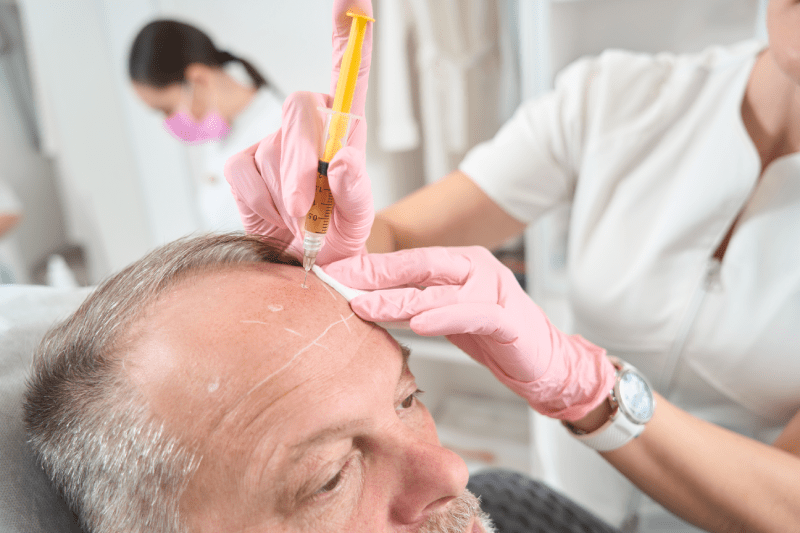
How Should I Care For My Own Hair After Hair Transplant
When caring for your own hair after a transplant, you must be careful not to apply pressure to the transplanted area for the first month. Use only soft-tipped combs and move gently when styling. After one month, you can return to your normal hair care routine, but avoiding harsh chemical products that might irritate the scalp is beneficial. In the long term, you can continue to use the special vitamins and shampoos recommended by your doctor to maintain the overall quality and control future shedding of your hair.
When Can Hair Be Cut Or Shaved After Hair Transplant
It is generally recommended to wait until the first month has passed before cutting the hair in the recipient area, and this cut should only be done with scissors. This period is necessary for the transplanted follicles to fully anchor and settle. It is advised to wait at least 3 months before using vibrating tools like electric clippers to shorten or shave the hair. For the donor area, a short cut with clippers is generally safe after 1 month. Specialists in Turkey will provide you with a precise timeline based on your healing status.
Can Beard Or Eyebrow Transplant Be Done Simultaneously With Hair Transplant
Yes, other facial implantation procedures like beard, mustache, or eyebrow transplants can technically be performed simultaneously with a hair transplant. This is possible if enough grafts can be safely harvested from the donor area, allowing the patient to undergo a single operation and recovery period. Such combined procedures are commonly performed in the comprehensive clinics of Istanbul, offering the patient the opportunity to improve their overall aesthetic appearance in one go.
What Should I Bring With Me When Coming To Istanbul For Hair Transplant
When traveling to Istanbul for a hair transplant, you must bring comfortable clothing with buttons or zippers. Such clothes can be easily put on and taken off without rubbing against your head after the operation. Additionally, a neck pillow to keep your head elevated and a wide, protective cap (in addition to the special one provided by your doctor) will be helpful. If you take regular medication, remember to bring it along with your prescriptions. Cure Holiday will provide you with a detailed checklist to facilitate your preparation.
What Is The Structure And Quality Of The Transplanted Hairs
Since the transplanted hairs are taken from the donor area (usually the back of the neck), they genetically retain the structure and quality of the neck hair. These hairs are generally stronger and more resistant to shedding. While they may appear thin or slightly curly when they first emerge, they will thicken over time and harmonize with the other hairs in the recipient area. Specialists in Turkey take great care to ensure the highest quality grafts are harvested and implanted at the most natural angles.
How Should One Sleep The First Night After Hair Transplant
The first night after a hair transplant is critically important to prevent the grafts from shifting and to control swelling. You must sleep on your back with your head slightly elevated (using several pillows). Using a neck pillow is recommended to prevent your head from turning sideways and the implant area from rubbing against the pillow. This sleeping position must be maintained for the first 5-7 days. These instructions are standard across all clinics in Istanbul for a successful recovery.
What Foods Accelerate Healing After Hair Transplant
Consuming protein-rich foods (eggs, red meat, legumes) and fresh fruits and vegetables rich in vitamins and minerals is essential for accelerating healing after a hair transplant. Focus on nutrients containing zinc, iron, and Vitamins C and B, which support cell regeneration. Drinking plenty of water is also necessary, as it contributes to scalp hydration and the overall recovery process. A healthy and balanced diet during your recovery period in Turkey will positively influence your final transplant results.
What To Do If Hair Transplant Fails Or Does Not Meet Expectations
Hair transplants in Turkey have a very high success rate due to high expertise. In the rare event that results do not meet expectations, you must first wait a full 18 months. Results should not be evaluated before this time. If dissatisfaction persists after 18 months, you should contact the specialists in Turkey who performed the operation for an evaluation. In this case, a complimentary touch-up or correction session can usually be planned for areas lacking density. Cure Holiday will also support you in managing this process.
Up To What Age Can A Hair Transplant Be Performed
There is no upper age limit for hair transplantation; it can be performed at advanced ages as long as the patient’s general health condition and the quality of the donor area are suitable. However, the procedure is generally not recommended for individuals under the age of 18 because the hair loss pattern has not yet fully stabilized. Any age group can be a candidate for a hair transplant once the hair loss has stabilized and sufficient grafts can be safely harvested from the donor area. Specialists in Istanbul evaluate each patient’s situation individually.
What Is The Experience Level Of Hair Transplant Specialists In Turkey
Turkey, particularly Istanbul, hosts specialists with an incredibly high level of expertise in hair transplantation. Due to the sheer volume of medical tourism, Turkish specialists and teams have vastly more case experience (thousands of operations) compared to their counterparts in other countries. This intense practical experience has given them unique competence in dealing with all types of hair loss, scalp conditions, and aesthetic expectations. This expertise directly enhances the quality of operations and the naturalness of the results, cementing Turkey’s reputation in the field.
